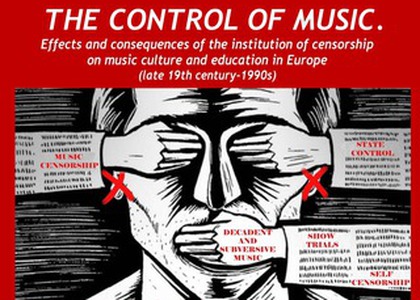> [Archived] Interviews

Interview with prof. Nicolae Gheorghiță, Ph.D
Thursday, 27th and Friday, 28th of October, the "Auditorium" hall of the National University of Music Bucharest hosts a conference about censure in music, organized by the Doctoral School "Constantin Brăloiu" and the Direction of Research, Innovation and Information within the instituation of education in Bucharest. We learn more about this conference from prof. Nicolae Gheorghiță, Ph.D.
I would like to discuss about the significance of this conference in which both students and teachers talk about the effects of the censure upon musical culture and, moreover, upon education.
It is, indeed, a project which is carried out for the first time in Romania about this subject. The project itself brings togheter, practically, six doctoral schools from our contry. It is a project that aims the investigation of the consequences and effects that the censor institution had upon musical education and culture in Romania during the three dictatorships from the 20th century, we are talking about the Carlist period, the period under Antonescu and the Communist period. This project is relevamt for some reasons. First and foremost, in view of the fact that we are able to bring togheter researchers and PhD students from musical doctoral schools from Romania. And it is about the young generation, which has to have access, in a fair and coherent way, to a history which has been troubled, at least regarding this matter, in our country. Secondly, we thoght that our project should be also an interdisciplinary one, calling not only specialist from the musical area abroad or from Romania, but also people that have dealt with cenusre in the art or literature zone, sketching this way a more cohrent and complex image of the fenomena that took place in Romania.
This conference provides the oppurtunity for our institution, the National University of Music Bucharest, and its research centers, particularly the doctoral school, to present some research we have done with with PhD and MA students, and also those from the research team from some important universities of the country. I am reffering to the National Academy"Gheirghe Dima" from Cluj, the National University of Arts "George Enescu" from Iași or "Transilvania" University from Brașov.
Another aspect I would like to raise is related to the fact that all the researches the romanian team has made were based on original archival documents from both the funds of our university and the funds of the Union of Composers and Musicologists from Romania, by far the largest fund of score and sound document. And, very important, I believe that the documents from CNSAS could be, again, a major element of the project and also one that would provide new data for all these subject we are talking about regarding censure.
Who are the guests from the International Conference?
It is about speakers from United Kingdom and Ireland, from Serbia, from Portugal, from Moldova, from the Czech Republic, Lithuania, to which is added, as I was saying, guests from Cluj and Iași, and of course, the regulars from the National University of Music Bucharest.
Foreign speakers areresearchers and professors at prestigious universities in the UK, from Oxford, Bristol, Durham University, who worked intensively on these sources especially from the former Soviet Union. Equally, we have people who have dealt with rge similar situation of the music that was censored in Lithuania, for example, and also we have an important teacher from there. From Lisbon comes professor Ivan Moody, who deals with the censor in the area of orthodox religious music.
I think that it would be relevant to mention the fact that some other specialist, professor Filip Ross Bullock from the University from Oxford and Harry White from Dublin, who deal with the Soviet zone and, particularly, of Shostakovich. Anyway, they are specialists who frequently investigates these themes and are up to date with the latest research directions that connect censorship and music in the former eastern bloc.
I understand that we can watch the conference on "Zoom". Will there be an editorial appearance after this conference?
For sure, we'll broadcast the conference online, on "Zoom", and of course, the works of these conferences will be published in the international periodical of the NUMB. It is about Musicology Today. So, yes, they will pe publiched and accesible both in paperback form and free online.
Translated by Andreea Petrescu,
University of Bucharest, Faculty of Foreign Languages and Literatures, MTTLC, year I
Corrected by Silvia Petrescu














